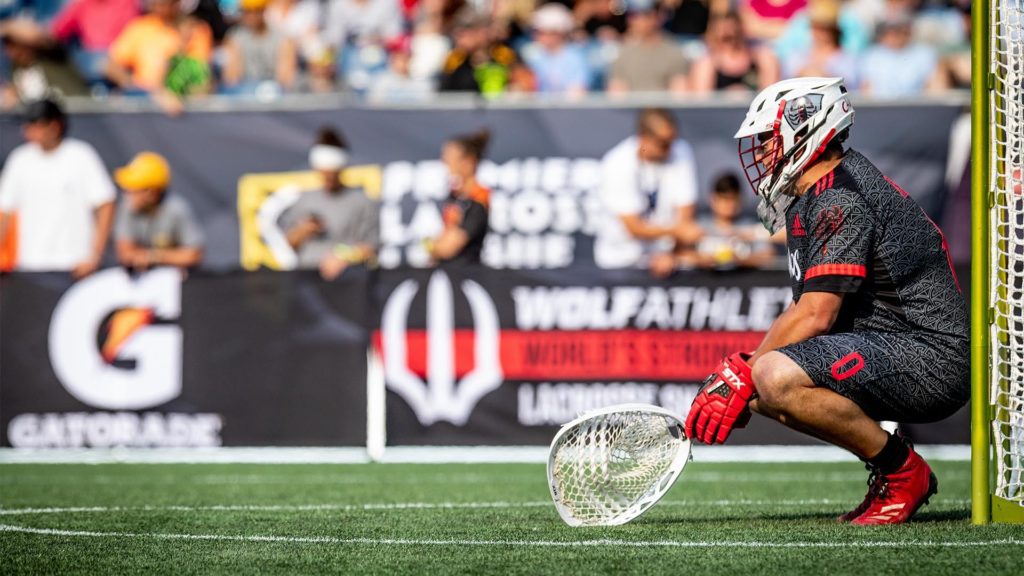
The Last Line of Defense
By Doug Greenberg | Jul 20, 2020
Imagine this. You’re standing in the goal crease and a long pole has the ball dead center at the top of the two-point arc, winding up for a 100+ MPH shot. There could be a thousand thoughts running through your head in this very brief moment. What part of the net is he going for? Could it be a bounce shot? Will I get hurt if it hits me?
But for many Premier Lacrosse League goalies, their mind is occupied with only one thing.
“Hopefully nothing,” says Archers goalie Adam Ghitelman. “When you find yourself in a flow state as a goalie, you’re hoping that you let instincts take over, and you’re just playing freely and responding to the ball.”
Clearly, only certain types of people can play goalie in lacrosse at the highest level; it’s a position that requires countless hours of physical training, tactical study and muscle memory mastery. But if one can overcome the immense levels of fear and pressure that accompany the position, the goalie will be rewarded with a satisfaction that rivals anything else in the sport.
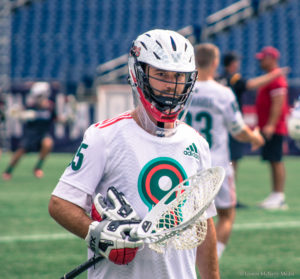
Bumps and Bruises
“I was always thrilled by that reaction of older guys getting frustrated with not being able to score on me and that kind of feeling gets addicting,” says goalie Kyle Bernlohr of the Whipsnakes, who started his career in net because his older brother and friends needed someone to shoot on. “I’m sure all goalies can agree with that feeling of being the last line of defense and stopping a shot.”
Like Bernlohr, many goalies are attracted to the position not out of passion, but out of necessity.
“I started off as an attackman and a midfielder,” says Chaos goalie Blaze Riorden. “In about fourth grade, my dad was the coach and I hit our goalie in the hand and broke his finger. We didn’t have a goalie and since I did it, my dad told me that I had to play goalie.
Ghitelman’s career in goal started in a different sport -- soccer. His coach on that team persuaded him to take up lacrosse and eventually coaxed him into the cage. The veteran goalie relented, but on the condition that he could take the crease wearing “baseball catcher shin guards, shoulder pads, elbow pads, everything you could imagine.”
The initial fear of physical harm is the first hurdle all lacrosse goalies must overcome at a young age. From there, as with all players of the sport, it’s a matter of developing stick skills.
“There are whole different stages in how you develop as a goalie from being scared, then learning how to protect yourself, then learning ‘Ok how do I get really good at this and make clean saves with my stick rather than just being a blocker?’” Bernlohr says.
“One thing that is a constant for all the top goalies in the world is they’ve mastered their lacrosse stick and their stickwork is impeccable,” says Ghitelman. “I think it should be every goalie’s motivation to be the best strong-handed stickhandler on the team.”
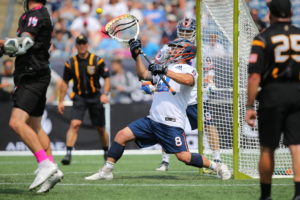
Control What You Can Control
Furthermore, it is the goalie’s job to facilitate the defense to force lower-quality opportunities and make the task of saving the ball that much easier
“It’s me and the defense knowing what shots we want to give up,” Bernlohr says. “Just barking out orders in terms of where I want guys to turn attackmen, where I want guys to double-team, where I want guys to throw a check… All that stuff they do so well naturally, but it’s just stuff that I’m barking out throughout the game.”
It is also the goalie’s responsibility to set the offense up for success. Riorden believes that his duties to the team are not limited to his own half of the field
“A goalie is a lot like a quarterback,” he says. “I think it’s just as important to be an athlete and have just as good of stick skill as anyone else because it’s my job to get the ball to the other end, to get the ball into the offensive personnel’s stick. My job’s not over until that’s done.”
One of the grim realities of the position, however, is that the ball is going to find the back of the net, almost certainly multiple times per game. Last season, Bernlohr and Riorden saved the ball about 55 percent of the time, with the latter keeper stopping a league-leading 153 shots on his way to Oren Lyons Goalie of the Year honors.
Impressive as that is, it still implies that goalies are going to let the ball in almost half of the time. It’s another massive mental obstacle these athletes must navigate.
“Your back is always against the wall as a goalie,” says Riorden. “Shooters always have the advantage, so it’s a constant uphill battle. That’s the toughest part.”
In order to remain successful, the goalies have developed strategies to stay calm and remain accountable with their defenses, especially when they feel it's a save they could have made.
“What’s done is done,” Riorden continues. “I’ve learned that the less I beat myself up, the better off I’m going to be. So after I make a mistake, I make it clear that I made a mistake.
“I first and foremost let [the defensemen] know that I love everything they just did, that that last goal is on me,” says Bernlohr. “Letting the defense know which goals were on me and which goals were something we could’ve done better as a unit is super important.”
“I’ve always found some solace in having the body language and being explicit to my defense,” Ghitelman says. “It’s providing them the confidence that you’re engaged and you’re confident that you’re going to make the next play. It’s critical for any goalie to have a really short memory.”
Take Over The Game
But even in the face of failure, these athletes embrace the opportunity to determine the outcome of a game. In other words, they don’t fear the pressure, they relish it.
“I love being the last line of defense,” says Bernlohr. “There can be a complete six-man unit breakdown on defense that will lead to a one-on-one shot, and you make that save, that’s all that matters. You can control the fate of any game.”
“You can dictate the outcome of a game single-handedly at times,” Riorden says. “Being locked in and knowing that not many people in the world want to get in net and have the skillset to be able to do it is a great feeling.”
It isn’t for the individual glory either. These athletes do it to give their teams the highest chance of success
“It goes back to the first thing I ever learned about the position, you're the last line of defense,” Ghitelman says. “You get the opportunity to be someone who can change the game
“I don’t think there’s a better feeling. My favorite part of being a goalie is winning.”

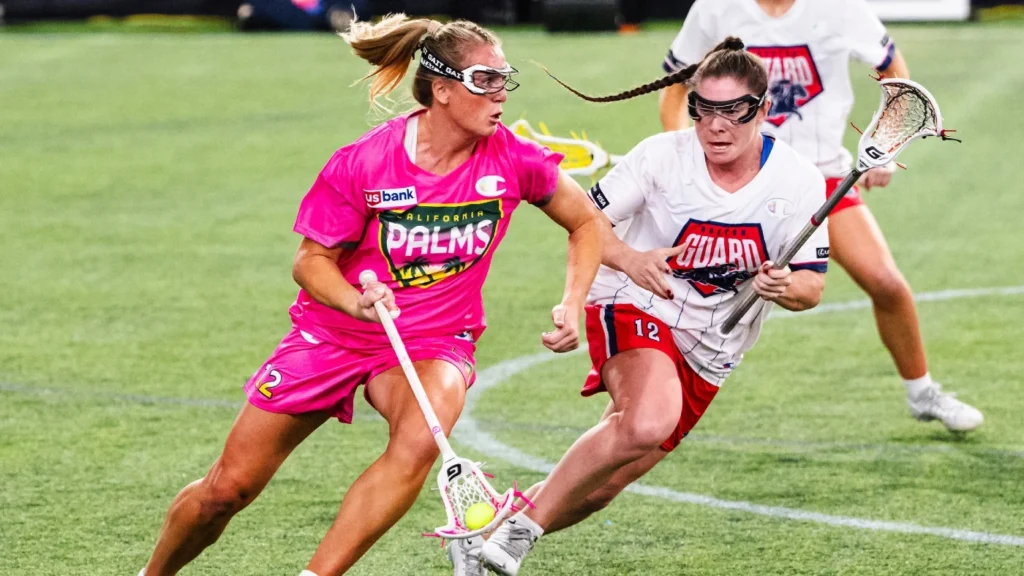
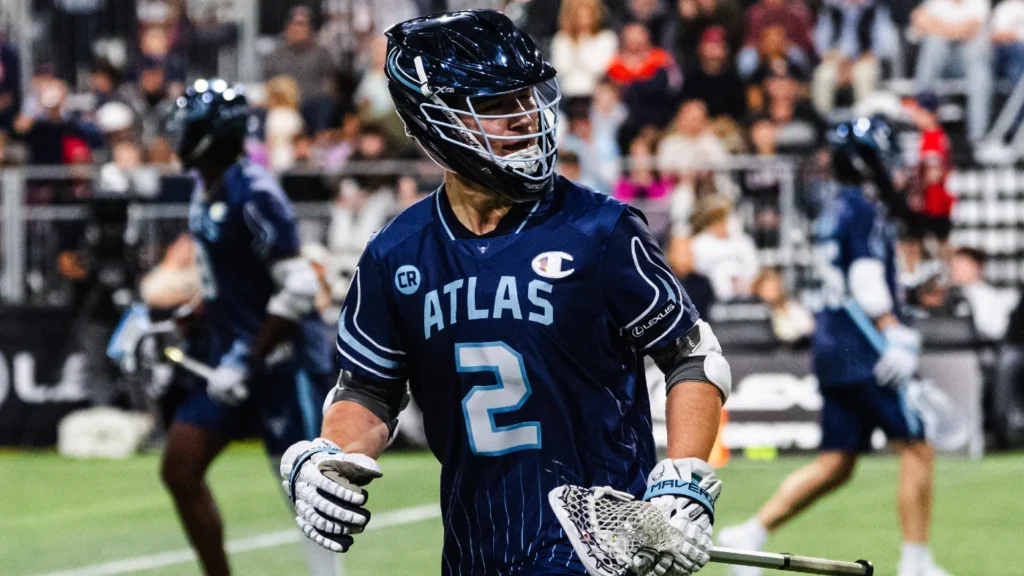
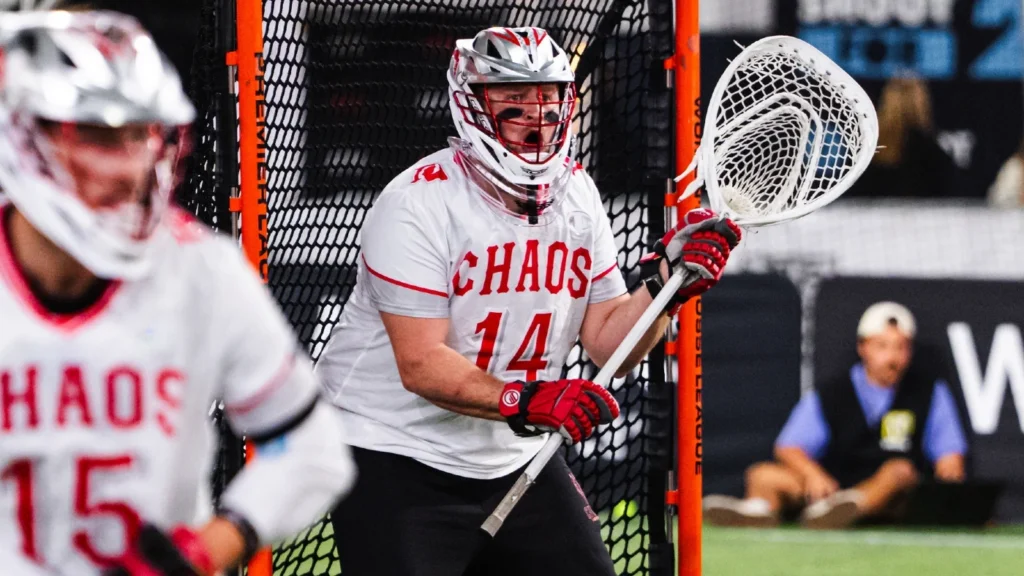
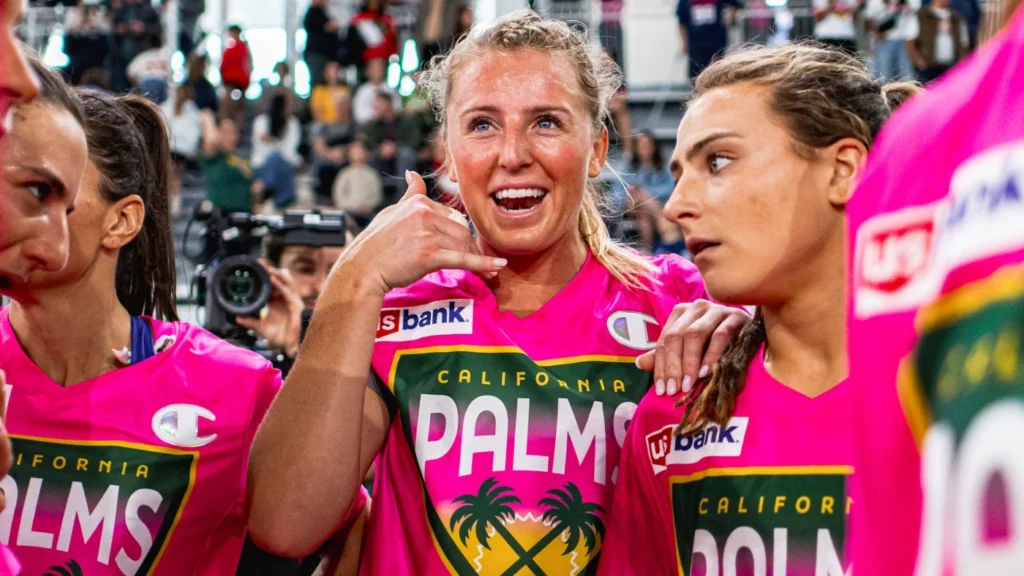
Pingback: it danışmanlık hizmeti
Pingback: microsoft exchange online plan 1
Pingback: dig this
Pingback: Bilad Alrafidain University |Bilad |Alrafidain |college students
Pingback: Smart Money: The Online Gambling Industry – The Next Best Investment Frontier?
Pingback: บาคาร่า1688
Pingback: Smart Rack
Pingback: nova88
Pingback: สล็อตวอเลท ไม่มีขั้นต่ำ
Pingback: great cvv shop
Pingback: sbo
Pingback: wow slot
Pingback: info@realcoldair.com
Pingback: buy chippa guns
Pingback: Alexa Nikolas Gray nazi
Pingback: maryland cornhole
Pingback: bonanza178
Pingback: healing music
Pingback: Samui International muay thai stadium
Pingback: เชื่อมสแตนเลส
Pingback: bola808 live
Pingback: ไฮเบย์
Pingback: Study in Africa
Pingback: unieke reizen
Pingback: รั้วสำเร็จรูปเชียงใหม่
Pingback: บริษัทรับทำเว็บไซต์
Pingback: dultogel
Pingback: สล็อต เครดิตฟรี
Pingback: บาคาร่าเกาหลี
Pingback: บับเบิ้ล
Pingback: hit789
Pingback: friendly farms cartridges
Pingback: sci/sci news/news sci/ science diyala
Pingback: ทางเข้าpg
Pingback: ไก่ตัน
Pingback: link
Pingback: รับจัดงานศพ